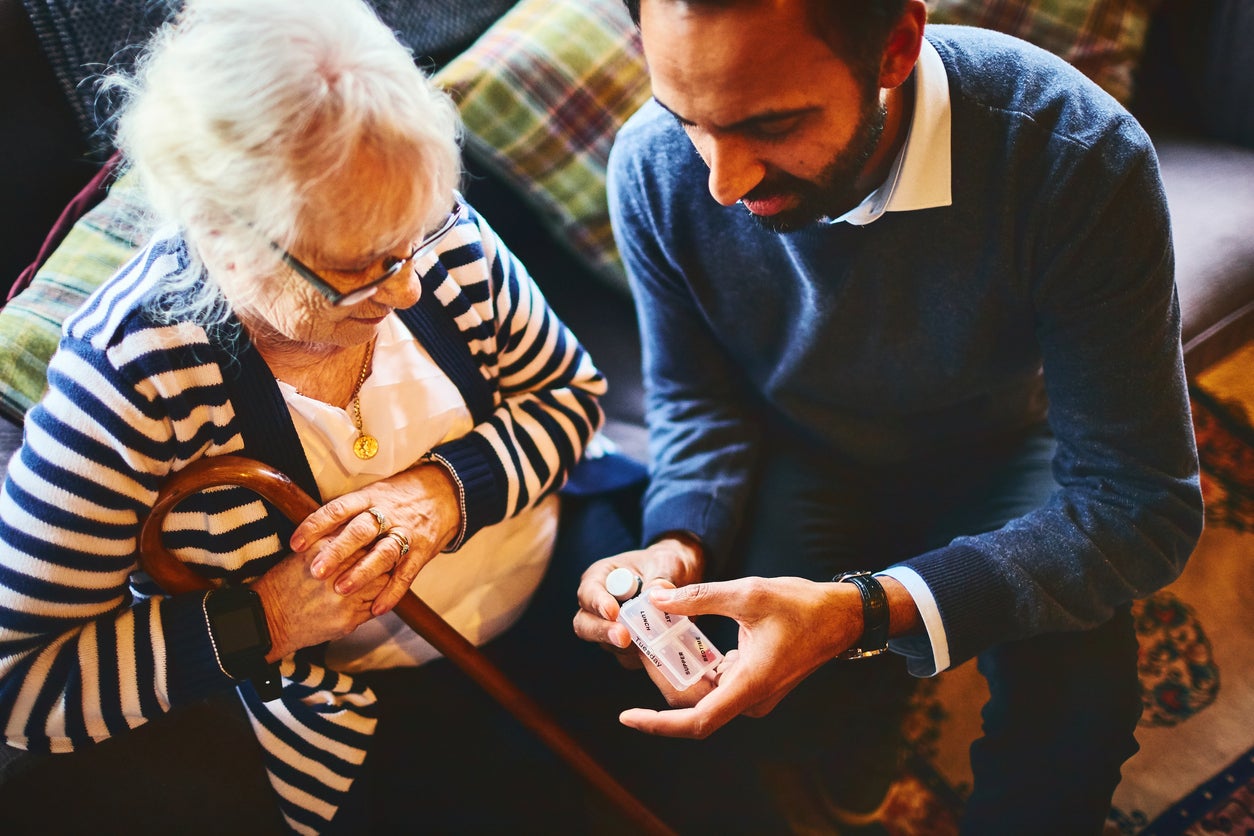Stop telling us to go ‘back to the office’ – home working is life-changing for carers like me
No one should have to make a choice between looking after our loved ones and facing unemployment


Conversations about how we will navigate our way in the world of work post-pandemic are happening. While there are some who will prefer working in an office to working from home and vice versa, one thing is apparent – the voices of disabled people and those who care for them are largely absent from these discussions.
My mother has severely impaired mobility. It sounds strange to say my mum “became disabled” – but that’s how it seemed to a 16-year-old me when suddenly my mum, always so independent and capable, could not walk properly, or sit down without being in excruciating pain. Social care is inadequate in the UK. As she is not of pension age, mum is not entitled to have carers popping round, which means I have been her primary care provider for more than half my life.
I’ve balanced my duty of care with my working life for years. When I worked in offices, it was a daily battle with anxiety, guilt and fear. Anxiety that my mum was at home struggling to cope, guilt that I was leaving her alone, and fear that an emergency situation may arise. Try dealing with that level of anguish while also trying to pay attention to what your colleague is saying – or struggling to get your head around a complex piece of work. On multiple occasions I would receive a call from mum – she could not get out of bed, or she’d dropped her lunch on the floor and had nothing to eat. I’d make my excuses to my manager in a fumbled, panicked way, and speed home. My own mental health suffered terribly during these times.
The depressing situation we face now is one in which, rather than embrace change, embrace a future in which employees are happier and the work-life balance is healthier, employers would prefer to fight this progress and wrangle us all back into our boxes like wayward cattle. In my previous roles, managers would casually wave aside home working as some sort of utopian pipe dream. This absence of logic persists. Ask why WFH cannot continue permanently, and the only answer seems to be “because.”
The reasons put forward for office working revolve around the notion that we all start bursting with ideas when we gather at a water cooler. This is a movie trope, the same way that nobody in film says “goodbye” before hanging up. In my experience, people traipse to the water cooler, alone, and return to their desks in silence. But that isn’t the shiny-toothed image of productivity the culture is trying to get you to buy. Another reason, supposedly, is that office spaces are great for collaboration – conveniently forgetting Zoom, Skype, Microsoft Teams and the like, where we can chat with our colleagues and share ideas just as well – and have been doing so for the past 18 months.
It makes it a much harder pill to swallow when we are told we must – for some unknowable and ambiguous reason – return to the office, at least some of the time.
Working from home has been life changing for me and for others, I imagine, in my position. Gone is the guilt of leaving my mum alone; gone is the abject fear that she’s going to fall or hurt herself. Now if my mum needs help, I can help her within a matter of minutes and then carry on with work – no more a blip in the day than a toilet break – meaning I don’t have to take the rest of the day off to travel home. Not only does this improve my personal situation, but it benefits my employer, as I don’t have to take time off to attend to my caring responsibilities or because the stress is making me ill.
I can’t express enough what a weight off my shoulders that is – how life-giving it feels. Looking back on how I lived when I was office-based, I was suffocating from the dread and shame of it all.
I and others in my position should never have to feel like that – to be forced to make a choice between looking after our loved ones and facing unemployment; or trying to make something of ourselves through work yet being racked with guilt at leaving them. For people like me, balancing our jobs with our caring roles, working from home means so much more than being able to sit about in your pyjamas – it means we can conduct our lives with dignity, and peace of mind.
Join our commenting forum
Join thought-provoking conversations, follow other Independent readers and see their replies
Comments
Bookmark popover
Removed from bookmarks